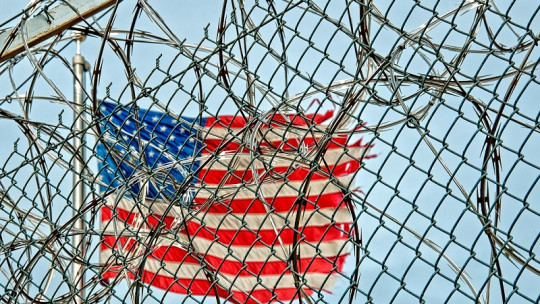
Information has recently come to light that some members of the American Psychological Association (APA for its acronym in English) endorsed and legitimized torture programs to extract information from some detainees after 9/11
Specifically, the APA members involved legitimized certain torture of detainees that allowed the US government to legalize such activities. Among some entities participating in the event we find the Central Intelligence Agency (CIA), senior managers of the Pentagon and the White House, with the then president of the United States George W. Bush
This is especially serious considering that, currently, the APA is one of the largest organizations linked to the world of psychology worldwide. In addition, it has 150,000 associates and has an annual budget of 70 million dollars. It is not in vain that its bibliographic citation system is one of the most used in the world.
The APA apologizes
Fourteen long years have had to pass before the APA, after successive complaints from senior officials in the world of psychology, has apologized in relation to the close cooperation in military interrogations. He did so after the publication of Hoffman Reporta 524-page document where the participation of said psychologists in what they called reinforced interrogation techniques is explicitly reported a euphemism for what has always been described as torture.
The Hoffman report is transcending in a notable way. There are now four senior officials of the APA who have either been expelled from the association, or on the contrary have left of their own volition suddenly. Among them are Ethics Office Director Stephen Behnke, Executive Director Norman Anderson, Deputy Executive Director Michael Honaker and Communications Officer Rhea Farberman.
What type of torture was used during the interrogations?
Ruthless and cruel procedures were used during interrogations. One of them was to play music at full volume to prevent detainees from falling asleep. Likewise, they forced the suspects to walk every fifteen minutes throughout the night so that they did not rest.
Another type of torture used was what was called waterboarding either simulated drowning This technique consists of immobilizing the individual and pouring water over their nose and mouth so that they do not actually drown but instead produce the sensation of suffocation.
Finally, it should also be noted that some CIA agents threatened to assault and violently attack the close relatives of the detainees.
What role did psychologists have in torture?
The psychologists analyzed the detainees and reported on their mental state, looking for their weak points (phobias, etc.) to later use them against them.
Jim Mitchell and Bruce Jessen, two retired American military psychologists, played a key role in carrying out torture on those suspected of belonging to the terrorist group Al Qaeda.
Learned helplessness as a technique to extract information from prisoners
Specifically, these psychologists proposed the theory of learned helplessness as a starting point to obtain the information they wanted. This theory was formulated and developed by Martin EP Seligman during the 70s, who studied the effects produced by applying electrical shocks to animals. Seligman observed that these animals displayed behaviors related to depression. Furthermore, he highlighted that these behaviors only occurred when the animal lost all hope, that is, when it came to thinking that it could not change its unfortunate situation.
The use of this theory in interrogations had the objective of reaching a moment in which the detainee lost all hope, as occurred in Seligman’s experiments, and in this way acceded to the agents’ demands.
Stephen Soldz, a prestigious Boston psychoanalyst who had been denouncing the APA for a decade, explains that the CIA agents excused themselves claiming that they were only following the recommendations that the psychologists proposed to them
The fine line between what is ethical and what is illegal
This whole matter leads me to reflect on what the profession of psychologist entails. We know theories and master concepts that can influence human beings, but that does not give us any power to use them incorrectly.
All professionals belonging to this sector should be clear about the line between what is ethical and what is illegal. Above all, in the dangerous area of military psychology








